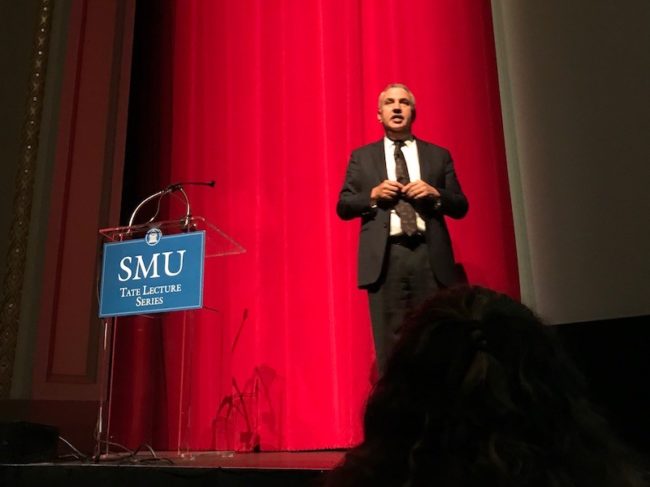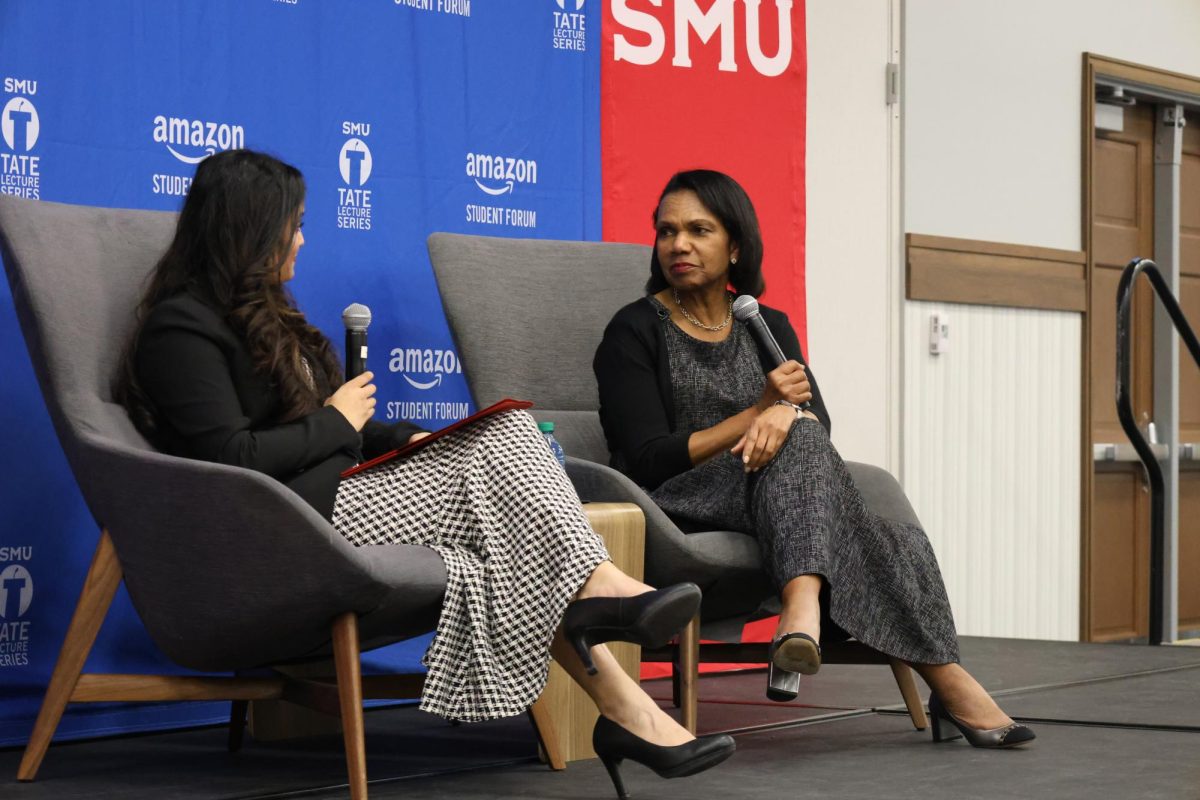As the rest of the world tuned into election results, an audience gathered at the Nov. 6 Tate Lecture to hear New York Times columnist and Pulitzer Prize winning journalist Thomas Friedman discuss how today’s changes are reshaping our world.
“My motto is: never think in the box, never think out of the box, today you must think without a box,” Friedman said.
Friedman focused on three non-linear accelerations—the market, Mother Nature and Moore’s Law—and argued that the interactions between these create the machine that is not only changing our world, but fundamentally reshaping it.
The market today is not the traditional market, but one of digital globalization. Referencing a chapter titled “What the Hell Happened in 2007?” from his latest book, Thank You For Being Late: An Optimist’s Guide to Thriving in the Age of Accelerations, Friedman discussed the rapid growth of technology from the creation of the the first iPhone to Facebook to cloud computing in 2007. This technological space has created a new era in where the power of a single person to be either a “maker” or a “breaker” is unlike anything we have ever seen.
Climate change is threatening the future of the world as we know it. Friedman reiterated that the intensity of climate change is heightened by the fact that the world is facing not one but three “climate changes.” So, what should people want when faced with climate change? Both resilience and propulsion. Inspired by Mother Nature’s responses to climate changes, Friedman argued the ability to be adaptable, entrepreneurial, pluralistic, and to allow bankruptcy and failure can help respond to accelerations.
Moore’s law, simply stated, is the processing speed or power for computing will double approximately every two years, while the price will decrease. This pattern of doubling allows for “hockey stick” shaped growth patterns and increasingly rapid accelerations in technology. Friedman iterated how these three accelerations have implications today in five realms: politics, geopolitics, ethics, the workplace and community.
The changes and responses in these realms vary greatly. In the workplace, employees need to develop the mindset of lifelong learners. As technology begins to accelerate faster than humans or communities are able to adapt, we need to learn how to govern better to adapt and learn faster. If we cannot learn to adapt, we risk replacement in a climate of business where machines can acquire all the characteristics of human beings.
Friedman noted how we handle the changing geopolitics of the world is vital. The new divide is not between the North and South or East and West, but rather between the world of order and the world of disorder. If we are unable to help stabilize the world of disorder we should expect continued challenges to our politics as people try to leave the disordered world.
Although many of the effects of reshaping of our world seem grim, Friedman emphasized that he remains optimistic. Returning to a fundamental principle, he argued that the best solution to this era of dilemmas is commitment to the golden rule, “do unto others as you wish them to do unto you.”
“Everyone today needs to be in the grip of the golden rule and sustainable values,” Friedman reiterated.
Beginning and ending the lecture, Friedman reflected on his hometown of St. Louis Park, Minnesota—a place where the government actually worked. He suggested that the view of the country from the bottom up reveals communities and local governments, like his hometown, which want to build coalitions and thrive in the face of disruption. This is achievable with an unwavering adherence to the golden rule and a realization that every single person’s beliefs matter in an age where anyone can participate in the global conversation.
“We are now standing at a moral interception we have never stood at before as a human species,” Friedman said. “I think we’re entering a world where one person could kill all of us, and at the same time where all of us could actually fix everything.”
As politicians promote policies that both figuratively and literally build walls, Friedman urged everyone to look for real solutions that will stand like the eye of a hurricane in the midst of great storms of change.















